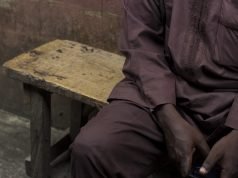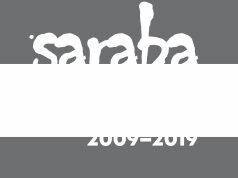By Nurudeen Lawal, Kemi Falodun, and Emily Achieng—
14 favorite reads from our archive by our Associate Web Editors. As we look forward to a more productive 2016, we encourage you to reflect with us on the excellent writing we published in the past.
- “A Writer’s Teething Diet: A City Experience” by Arthur Anyaduba, in The City Issue: If you’re an aspiring writer who is desperately in search of something “new” to write about, read this essay. And if you haven’t been to Lagos before, make a date with Lagos: a city swelling with stories.
- “Of Similitude and Verisimilitude” by Tade Ipadeola in The Justice Issue: Before you accuse writers of various literary “crimes,” read this essay.
- “Attempted Speech” by Kola Tubosun in Attempted Speech and Other Fatherhood Poems: A heartwarming childhood journey, beyond the phases of growth and development in speech.
- “When Home is no Longer where it Used to be” by Hyginus Ekwuazi in The History Issue: This poem is a favourite because it grapples with a transitory concept: the concept of home. Many people think that home is a physical space but when they no longer feel at home “at home”, they realize that “home” is a feeling, not a space.
- “Madam” by Victor Ehikhamenor in The Special Issue on Displacement: This is great narrative. Illustrated with brilliant artworks (also by the author), “Madam” is a compelling story on human trafficking.
- “Many Colored Brooms” by Alexander Ikawah in The Survival Issue: The ending was magical.
- “Ireti” by Damilola Yakubu in The Survival Issue: You are familiar with the traditional belief in generational curse (the theme of the story), and stories woven around it. Here, the familiar is made fascinating.
- “Epiphanies III” by Jumoke Verrisimo, in Epiphanies: Read this as a poem of regrets—accompanied with the will to shed those regrets and forge ahead.
- “Deliquium” by Jumoke Verissimo in Epiphanies: Verissimo’s outlook on pain is distinct. Deliquium puts you in the dark gap between two worlds. Between living and dying.
- “A Wait” By Kola Tubosun in Attempted Speech and Other Fatherhood Poems: The torment of waiting, through a dexterous use of simile and metaphor, is visually portrayed in this poem. “A Wait” recalls a Yoruba adage that says prolonged waiting sickens the mind.
- “Peninsula of Poets” by Umar Abubakar Sidi in The Poet of Sand: You cannot read it in a rush. In this poetry chapbook, Umar Sidi holds your hand and leads to you to a world you have never imagined. He borrows from Christianity, Sufism, and several myths to ensure that you do not just read to enjoy, but also learn. He sits us in a classroom, and by the use of relatable imageries, gives us lessons on life. In “Peninsula of Poets,” he speaks about his initiation into poetry and testifies to the knowledge he has acquired from several poets.
- “When I Was Writing My Bones” by Adebola Rayo in The Solitude Issue: This short story speaks of love, memories, separation and the torment in longing; when days become repetitive as though merely filled with gaps of time. At some point, it feels like you’re in a battle against words; if you win, you can at least be present in your own life. Fear of solitude becomes a haunting signal of ghosts that will not die.
- “Injured On Duty” by Jen Thorpe in The Survival Issue: Jen Thorpe addresses the issue of gender inequality and social prejudice against women in many societies.
- “Children Without Revolution” by Victor Ehikhamenor in The Justice Issue: Victor Ehikhamenor, in the Justice Issue, speaks out for Nigeria: “We clutch our bibles and babies with churches and cathedrals on our minds, but we sit still on seats of fear in our private solitude…With hands on our heads, we the children without revolution, yearn for yesterday’s Pharaoh since our Moses has folded like cheap umbrella.”
Other picks from Saraba Weekly
- “Freedom and the Writer” by Rotimi Babatunde: This idea of freedom in writing is geeky, memorable, and exciting.
- “Mapping Violence” by ‘Yinka Elujoba: The anguish war brings stays with the victims for the rest of their lives. This is a reminder not to harbor panic in silence but make memories concrete by the use of words.
- “Nigeria’s first MFA Programme!” by Kenechi Uzor: Honest, knife-sharp, thought provoking writing that unveils the necessity of efforts to improve writing in Nigeria.
- “You Write Because You Have Something to Say” by Noo Saro Wiwa: Allowing a story to force itself out and not necessarily searching for it is a big thing. I found it fearless and well thought.
Share your best reads of 2015 with us on Twitter using #Best2015Reads until December 31.
































